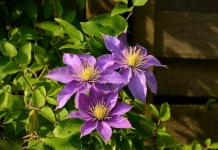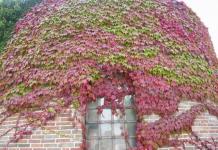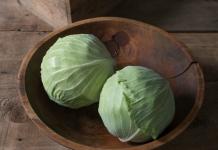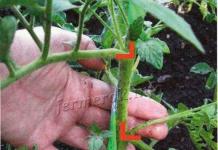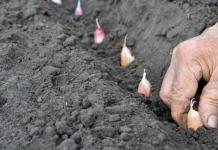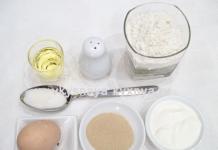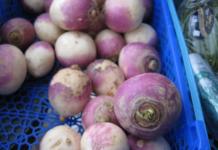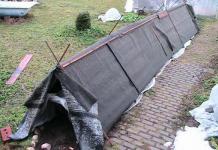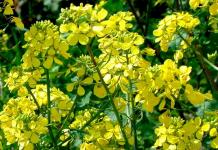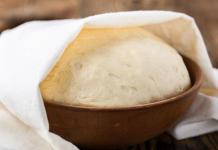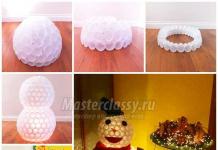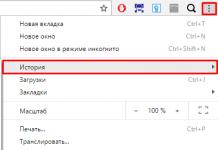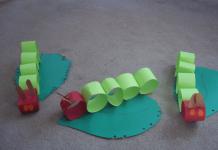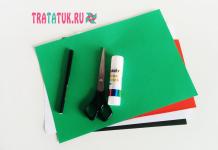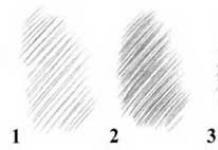Aphids are one of the most vicious garden pests, which sometimes affects indoor plants, for which we ourselves are to blame, bringing infested flowers from the "wild". The danger of aphids is that, unlike all other insects, they have powerful defenders: ants. We will talk about the role of ants in the reproduction of aphid colonies a little later, and what you need to do to get rid of aphids.
Home and garden plants: what suffers first?
Aphids prefer plants with sweet juice, not in the human sense, of course. In the wild, it is dandelion and euphorbia, among vegetable crops - tomatoes, among domestic plants - hibiscus. How do you know if your plants are infected with aphids? You don't even need to look closely in search of these small insects, the affected plants dry, wither and slowly die for no apparent reason. Deprived of the juices that aphids suck out of them, they will inevitably turn into their own mummies.
If you see something like this happening to your trees, flowers, shrubs or garden plantings, it's time to arm yourself with a magnifying glass. Aphids have soft, pear-shaped bodies with long legs and antennae and can be green, yellow, brown, red, or black depending on the species and the plants they feed on. Some species appear waxy or woolly due to the secretion of a waxy white or gray matter protruding from the body surface of the aphid. Most species have two protruding tubules on the back of the body. The presence of these tubes distinguishes aphids from all other insects.
As a rule, adult aphids are wingless, but most species also occur in winged forms, especially when populations are high, in spring or fall. The ability to produce winged individuals provides pests with a way to travel to other plants when the primary food source deteriorates.
Although they can exist singly, aphids often feed in dense clusters on leaves or stems. Unlike larvae, beetles, and some other insects that can be confused with aphids, most aphid species do not move even when disturbed.
The life cycle of aphids is terrifying from the point of view of the gardener: in warm climates, aphids reproduce all year round, each individual, without needing to mate, can lay up to 12 eggs per day. A young nymph changes her skin four times before becoming an adult aphid, but this happens very quickly - within a week. And if ants are involved, expect trouble!
How to kill aphids and ants at the same time

Ants, although useful and hardworking insects, significantly help aphids to reproduce. The fact is that the tiny aphid has a special proboscis, with which it pierces the delicate surface of a young plant and sucks out the plant sap. From it, she receives the proteins necessary for life, and excretes sugar from her body in the form of waste - sweet droplets called honeydew. So, ants tasted this deliciousness a long time ago. Yes, they not only tasted, but also domesticated these walking confectionery factories. They began to take care of aphids, guard and protect it, even with their own hands, carefully pinching it with mandibles, transferring it to new plants, where the pasture leaves are more tender and juicy. Just like the owners leading herds of cows, goats and sheep to the grassy meadows. In winter, ants carry away part of the aphids to underground caves for wintering, according to formicologists.
Thus, no matter how you sympathize with the little toilers-ants, if they took up herding herds in your garden, you will have to get rid of insects with complex insecticides. Although it may be worth starting with folk remedies.
How to get rid of aphids with folk remedies

Diatomaceous earth, or diatomaceous earth, is very popular in the fight against hundreds of species of insects. Diatomaceous earth is a natural sedimentary rock. It contains silicon dioxide, aluminum oxide and iron oxide.
I personally used it on my mother's plot as a pesticide against various insects, including aphids and ants. It works by breaking down the waxy protective layer on the insect's exoskeleton, effectively dehydrating it. We sprinkled aphid powder directly on flowers and tomatoes. The ants disappeared immediately, the sprinkled aphids died the next day, and in general the number of aphids dropped sharply, but most of the plants by that time were already severely damaged. We sprayed the rest with soap.
You can coat tree trunks with clay, put plastic or foil skirts on them - but this only works on large plants.
The second option is garlic spray. In a spray bottle, mix 2 cups (500 ml) water with 4 tsp. (20 ml) garlic powder. Spray this solution on plant leaves, windowsills, and other places where ants tend to graze their flocks. Aphids do not like the powerful smell of garlic and generally stay away from garlic. This does not kill insects, it only drives away. You can also chop a few cloves of garlic and spread the pieces around the areas where aphids have spawned. Also, aphids do not like the smell of ordinary or catnip. Like garlic, they do not kill, but only repel insects.

The easiest plant protection method is to use aluminum coated mulch paper to repel aphids and whiteflies. But in application it is not as simple as it might seem: if the ground below is too wet, fungi will multiply on it, it will begin to attract some insects - in our particular case it was a bear, which turned out to be a worse misfortune than aphids. But it's still worth a try - perhaps it is in your version that the foil paper will work.
If that still doesn't work, try soaping up the infected plants. True, it is advisable to do this in cloudy weather, so that soap drops, creating hard-to-evaporate lenses on the leaves, do not cause sunburn of plants. Soap dries out aphids, but this is not enough, and then insecticides come into play.
Chemistry against aphids: which drug to choose?

Most popular ingredient in synthetic chemical insecticides: imidacloprid. Imidacloprid is often supplemented with other substances to broaden the range of action of the product. For example, this is the popular bifenthrin, which allows you to cope with cruciferous fleas on the site, lambda-cyhalothrin - and then the drug works great against pests of cereals, or pencycuron - and then your potato crops are saved. I must say that the last combination allows you to guarantee the destruction of aphids on tomatoes, since both tomatoes and potatoes belong to nightshades.
Imidacloprid hardly gets into fruits, its maximum concentration is reached in leaves and fruits. It is important that in its pure form it is used for household pest control from various types of ants. This means that in our case it is perfect: it will destroy both cows and their shepherds, clearing the plantings of harmful insects.
Translaminar insecticides enter the aphids through the esophagus. “Systemic or transaminar insecticides tend to be more effective than contact insecticides, provided that a sufficient amount of the insecticide reaches the feeding sites of the aphids. Contact insecticides can be very effective if well sprayed and penetrated well by the aphids. To do this, you need to use the insecticide twice a week, to consolidate the result. You need to carefully read labels and record the results to determine which drugs your aphid is resistant to and which ones kill it, ”advise entomologists at Cornell University.
Translaminar insecticides are usually supplemented with contact agents, for example, containing karbofos or active plant components, in particular Neem oil. Or something from folk remedies - like sprinkling with ash or spraying with soapy water.
TOP products for the destruction of aphids

Anti-aphid preparations are divided into several types: the first, and the most popular, are sprays, soap-based or just water-based. Then there are dry powder sprays, which are mainly used in indoor greenhouses. For small areas of a garden or interior, for example, to destroy aphids on hibiscus, system capsules are used that are buried in the ground or scattered over the surface: when watering, substances will slowly enter the root system of the plant and poison the aphids. Sticky traps (strips or plates) can be used as a preventive measure.
Garden Safe Neem Oil Extract Concentrate

Indian azadirachta is a plant that is better known as him, mangoza or Indian dope. Its oil is high in pungent-smelling substances, among other things. In general, it is used in India as a panacea for almost all diseases, but the aphid does not tolerate it. Therefore, it is not surprising that neem oil extract is not only the safest, but also the most popular remedy for getting rid of aphids. It is a favorite for organic gardeners. Inexpensive - $ 14.97 for 16 ounces, can be used even on harvest day. It is both a fungicide, an insecticide and a miticide - that is, you will at the same time be rid of ticks if you have them in your garden. 4.3 stars out of 5 - a great result! And almost 600 satisfied customers who have left reviews.
Bayer Advanced 701710 2-in-1 Insect Control Plus Fertilizer Plant Spikes

Quite a popular drug that destroys insects for up to 8 weeks in a row, and acts as a barrier and is harmless. However, the high consumption of Insect Control Plus by Bayer leads to the fact that although the substance is used very readily and speaks positively about it (3.9 stars out of 5), its main field of activity is pot crops and seedlings. It perfectly destroys spider mites, aphids and thrips; has proven itself remarkably in solving the question: how to get rid of aphids on indoor plants: on ficuses, gerberas, grapes, container shrubs and trees. But for a large area, it is better to choose something more convenient. Price for ten capsules to be stuck in the ground near affected plants - $ 9.42
Trapro 20-Pack Dual-Sided Yellow Sticky Traps for Flying Plant Insect Like Fungus Gnats, Aphids, Whiteflies, Leafminers

The classic sticky sheets of bright yellow color attract all flying insects, not just aphids. They are very easy to use, non-toxic, designed for pests of indoor, garden and garden plants, therefore they are most often used in greenhouses and houses. True, they do not work on flies and mosquitoes, according to the manufacturers, but buyers successfully use sticky sheets for catching mosquitoes. In general, for indoor spaces it is simply irreplaceable, the main thing is to renew the sheets completely covered with dead insects in time. The only negative is that you have to wait a little while the traps will significantly reduce the aphid population. Customer ratings are high - 4.3 out of 5 stars, price: $ 12.99 per 10-sheet, 6x8-inch pack with fasteners.
Garden Safe 80422 Houseplant and Garden Insect Killer

The spray, which can be used both outdoors and indoors, is not harmful to humans, but kills aphids on contact. 3.9 stars out of five - this is a lot: the effectiveness is confirmed by more than 140 reviews, but it is difficult to call this spray economical: for it to work, you need to water the plants so that, as a US buyer Alan Olt writes: “the liquid drips from both sides sheet ”. In addition, for allergy sufferers, this spray can cause an exacerbation: according to reviews, the "fog" after spraying hangs in the air for quite a long time. Therefore, experts recommend using it pointwise: on individual, most infected plants, and at the same time do not forget about airing the room. Price - $ 11.35

The killer soap solution has received 4.2 out of 5 stars and over 500 positive reviews. It has a number of advantages at once: firstly, the soap does not allow the substance to roll off the leaf and envelops insects, literally chaining them into place. Second, 16 ounces is enough for 6 gallons of water, which means that the concentrate from the smallest package will process several acres of the garden. It is necessary to repeat the treatment every 7-10 days, you can even before the very harvest: the “killing soap” really contains almost 50% of the soap, and it is easily washed off. The only limitation is that it is not recommended to use in heat above 90 degrees, so as not to damage the plants. The price for 16 ounces is $ 16.99, for a package twice the size - $ 34.98.
Bonide Product 951 Systemic House Plant Insect Control

A product of a completely different plan than the previous one - a systemic insecticide in the form of granules. It must be scattered pointwise around the plants, perhaps, dig a little into the soil: precipitation will wash out the active substances, and it will last for a long time. The action is reminiscent of nicotine sulfate, which is commonly used to treat aphids in indoor plants. The tool is effective, but uneconomical, therefore it is usually used for indoor plants, or for complex infestation: simultaneously with aphids, mealybugs, midges and other insects. Price $ 8.97 for 8 ounces and 4 stars out of 5 possible.
Bayer Advanced 701615 12 Month Tree and Shrub Protect and Feed Concentrate

Liquid insecticide with imidacloprid is successfully used to treat trees, shrubs and flowers in the garden, preventing further infection: this is both a saving and an integrated approach. The best solution is if your aphid-infested garden is large and has an abundance of tall plants. 4.5 stars out of 5, 76 reviews, which for the most part give the highest rating to the drug. $ 69.97 per gallon and your garden is healthy - this is a great alternative to professional treatment that costs 3-4 times more.
| Name | A drug | Price | Advantage |
|
Garden Safe Neem Oil Extract Concentrate (HG-83179) (16 fl oz) |
$14.97 | Natural substance (Neem oil), absolute environmental friendliness of use | |
|
Bayer Advanced 701710 2-in-1 Insect Control Plus Fertilizer Plant Spikes, 10-Spikes |
$9.42 | Optimal price / performance ratio for pot crops and small greenhouses | |
|
Pack Dual-Sided Yellow Sticky Traps for Flying Plant Insect Like Fungus Gnats, Aphids, Whiteflies, Leafminers - (6x8 Inches, Twist Ties Included) |
$12.99 | The first line of defense against aphids - allows you to catch insects at the stage of settlement | |
|
Garden Safe 80422 Houseplant and Garden Insect Killer, 24-Ounce Spray |
$11.35 | Contact form, does not accumulate in fruits | |
|
Safer Brand 5118 Insect Killing Soap - 16-Ounce Concentrate |
$16.99 | Super economical, additional drying effect due to soap content | |
|
Bonide Product 951 Systemic House Plant Insect Control 8 Oz. |
$8.97 | Long-term effect due to the capsule form of release | |
|
Bayer Advanced 701615 12 Month Tree and Shrub Protect and Feed Concentrate, 1-Gallon |
$69.97 | Economical processing of trees and shrubs |


